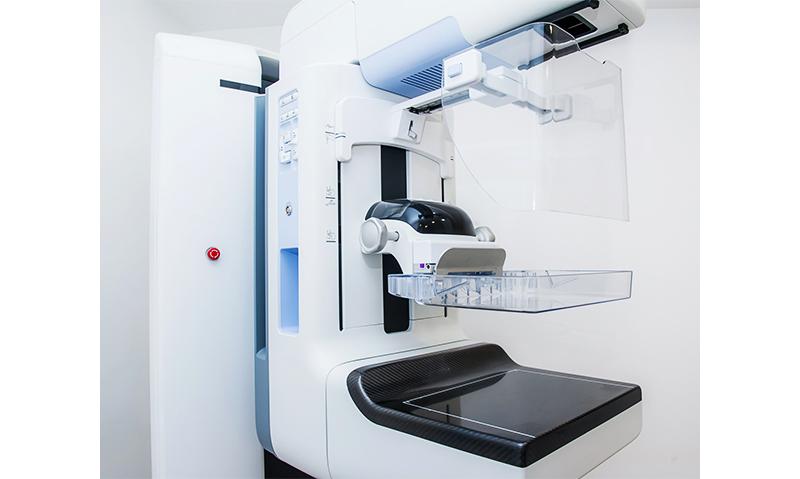Mammography Unlikely to Benefit Older Women with Chronic Illnesses
Posted in News Release | Tagged breast cancer, cancer, Ralph Lauren Center for Cancer Prevention
Mortality due to chronic illness greatly exceeds breast cancer risk

Media Contact:
Karen Teber
km463@georgetown.edu
WASHINGTON (September 6, 2019) — Regular screening mammograms are unlikely to benefit women 75 and older who have chronic illnesses such as cardiovascular disease or diabetes. New data suggest they would likely die due to other health conditions before they developed breast cancer.
That is the finding of a new study based on data from more than 220,000 women that was published September 6, 2019, in JNCI.
“Our findings shed light on what age may be the best stopping point for mammography. If you have chronic illnesses after age 75, our findings do not support continuing mammograms,” said senior author Dejana Braithwaite, PhD, an associate professor of epidemiology and oncology at Georgetown Lombardi Comprehensive Cancer Center.
Using data from Medicare claims and the Breast Cancer Surveillance Consortium — which gathers the largest set of data in the world on older women who receive mammograms, as the United States is one of the few countries to continue screening women into their 80s and sometimes 90s — the researchers found that for women who lived past age 75, fewer cases of new invasive breast cancer and ductal carcinoma in situ (DCIS), a non-invasive pre-malignant growth, occurred.
“This study examined who is not likely to benefit from screening mammography after 75 years of age,” said co-author, Karla Kerlikowske, MD, a professor of medicine at UCSF and physician at UCSF-affiliated San Francisco VA Medical Center. “We hope that future research efforts can build on our evidence and inform discussions about optimal screening strategies for older women.”
The investigators looked at breast cancer incidence (new cases) and death from breast cancer and other causes over a period of 10 years among 222,088 women who had one or more mammograms between 66 and 94 years of age; they found that 7,583 women were diagnosed with invasive breast cancer and 1,742 with DCIS. Over the 10 years, 471 women died from breast cancer and 42,229 died from other causes, a nearly 90-fold difference.
The investigators also noted:
- Women ages 75 to 84 were 123 times more likely to die of causes other than breast cancer; this estimate was even higher among women age 85 and older.
- The risk of dying from breast cancer stayed steady as the risk of dying from non-breast cancer causes increased; conversely, the risk of being diagnosed with breast cancer decreased slightly after age 75 regardless of women’s overall health status.
- The 10-year risk of dying from breast cancer was small and did not vary by age; it stayed about the same from age 66 to 94, accounting for just 0.2% to 0.3% of all deaths.
The United States Preventive Services Task Force notes that there is not enough evidence to recommend for or against screening women age 75 or older. Many breast cancer programs in Europe stop screening women between the ages of 69 and 74.
“Our research underscores the need to individualize screening decisions among older women,” said first author Joshua Demb, PhD, a postdoctoral researcher at the University of California San Diego. “To that end, we hope that our analyses contribute to developing effective tools that older women can use in consultation with their health care providers to decide a screening strategy that is best for them.”
In addition to Braithwaite, Kerlikowske and Demb, authors include: Linn Abraham, MS, Ellen S. O’Meara, PhD, and Diana S.M. Buist, PhD, Kaiser Permanente Washington Health Research Institute, Seattle, WA; Diana L. Miglioretti, PhD, Department of Public Health Sciences, School of Medicine, University of California Davis and Kaiser Permanente Washington Health Research Institute, Seattle, WA; Brian L. Sprague, PhD, Department of Surgery, University of Vermont College of Medicine, Burlington, VT; Shailesh Advani, MD, PhD, Department of Oncology at Georgetown Lombardi; Louise M. Henderson, PhD, Department of Radiology, University of North Carolina at Chapel Hill, NC; Tracy Onega, PhD, Department of Biomedical Data Science, Geisel School of Medicine at Dartmouth, Lebanon, NH; John T. Schousboe, MD, Park Nicollet Clinic & Health Partners Institute, Bloomington, MN; and Louise C. Walter, MD, Department of Medicine, University of California San Francisco.
The authors report no relationships or conflicts of interest to disclose relevant to this study.
This work was supported in part by grants from the National Institutes of Health (1R01CA207361-01A1 from the National Cancer Institute to Braithwaite). Data collection was supported by the Breast Cancer Surveillance Consortium with grants from the National Cancer Institute (P01CA154292, U54CA163303, R01CA149365).
Demb J, Abraham L, et al. Screening mammography outcomes: risk of breast cancer and mortality by comorbidity score and age. JNCI. Sept. 6, 2019. DOI:10.1093/jnci/djz172.
